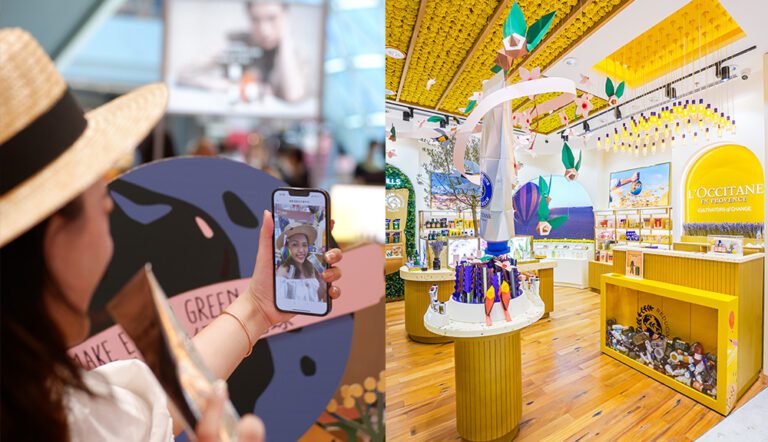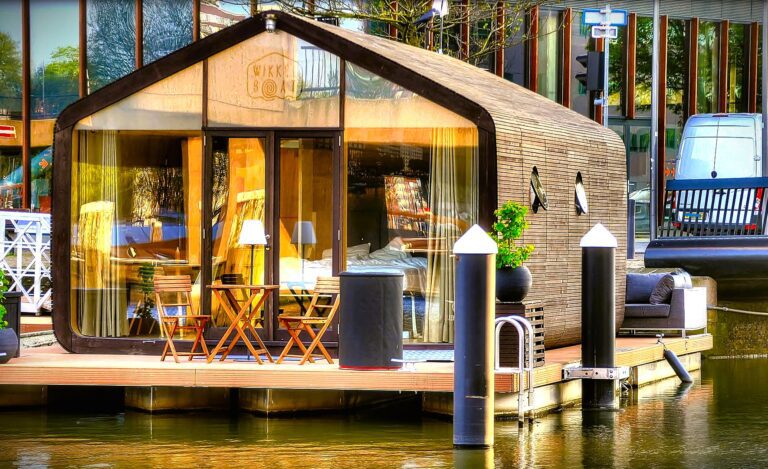
The world of sustainability can be full of doom and gloom, but not with Play It Green.
Below, you can read our top three recent sustainability news stories that give us all hope for a better and greener future.
Our first story comes from Haitang Bay’s Sanya International Duty Free Shopping Complex, in China, where L’Occitane Travel Retail Asia Pacific opened its first sustainability concept store in Hainan this July.
The store, which highlights the brand’s environmental credentials, was created in collaboration with China Duty Free Group (CDFG).
It reflects L’Occitane’s dedication to sustainability and was built using 84 per cent eco-certified materials in keeping with the company’s new ethos of “Rethink, Recycle, Reduce.”
When looking at the store’s construction process in greater detail, L’Occitane emphasises the use of a sustainable strategy throughout, with a focus on upcycling and end-of-life recycling.
Lightweight bamboo is used for fixtures because it is one of the most environmentally friendly materials and doesn’t contain any plastic.
By switching to electric delivery trucks, the new boutique’s carbon impact has been “greatly reduced.”
The store also boasts a chandelier made up of recycled L’Occitane glass bottles to emphasise the message about eliminating waste.
Furthermore, all the tabletops are made from upcycled glass.
Estelle de Bure, General Manager of the L’Occitane Group Travel Retail Asia Pacific said: “We hope that the launch of our first sustainability concept store in Hainan will prove inspirational for our customers in finding ways to recycle, reduce waste, and promote the biodiversity of the planet.”
Here at Play It Green, we love when companies take their next step on their sustainable journey and by engaging their consumers, L’Occitane is certainly showcasing a better way to do things.

Our next story jumps to Europe’s largest port, located in Rotterdam, which has a space issue. The Netherlands as a whole is actually quite small, and as its cities continue to grow, urban planners are trying to figure out how to solve the problem.
A startup called Wikkelboat has an innovative solution to this issue: little cardboard-built floating dwellings.
You did read that correctly. Normally, cardboard and water don’t mix, yet the waterproof and wooden coating on these little structures keeps them practical and lightweight.
The houses have a low production footprint and cardboard has excellent soundproofing and insulating properties.
Wikkelboat was established four years ago and currently operates five houseboats in Rotterdam’s Rijnhaven harbour and two more in Wijnhaven.
The dwellings weigh around 500 kilogrammes each and are made from 1.2 metre long lengths of cardboard. Each house’s dimensions can be altered because the segments are modular.
The interior space can hold four to six people and they make clever use of every available inch, much like other compact living spaces.
The TV is a roll-down projector, beds and workstations fold out of the wall, and a hot tub is concealed beneath the terrace outdoors. They even have solar panels to power them.
The Wikkelboats are providing Rotterdam’s historic, but under-used harbours with a unique appearance and modern use. all while minimising their environmental impact.
The floating mini buildings can be used as temporary housing, event venues, hotels, and workplaces and it’s hoped that they will contribute to the development of Dutch cities on the water.
The floating Global Centre on Adaptation (GCA) structure in Rotterdam is a prime example.
Serving as a showcase of the need for climate adaptation it is the largest floating office in the world, docked in the Rijnhaven harbour.
Great work, Wikkelboat!

Our last story comes from the UK where Sainsbury’s has announced the launch of their Innovation Investments, which will invest a minimum of £5 million over the next four years into start-up businesses commercialising innovative, sustainable technologies.
This initiative is part of Sainsbury’s commitment to reach net zero in its own operations by 2035 and will support businesses that look to create innovations that reduce operational carbon emissions and water usage.
The announcement builds on the significant environmental progress Sainsbury’s has already made.
The retailer drastically reduced its carbon emissions in its own operations by 762,119 tCO2e, a reduction of 7% from the previous year and 20% from its baseline for 2018–19, keeping it on track to meet its Net Zero target of 2035.
Patrick Dunne, Sainsbury’s Property and Procurement Director said:
“We are committed to reaching our Net Zero target of 2035 and are proud to be doing our part in leading the way to create solutions that will reduce carbon emissions and water usage not just in our stores, but across the entire sector.
We know that reducing emissions and water use is a critical part of tackling the climate crisis and to achieve this, we understand the importance of investing in pioneering technologies that can be adopted by all retailers.”
Well done, Sainsbury’s – using your financial strength to support change is a great move.
As you can see – there are a lot of reasons to be hopeful when it comes to a sustainable future.
Play It Green can help you and your business on its journey to Net Zero and if you would like to find out more, please get in touch using the form below.




